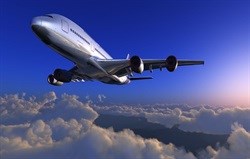
Top stories
More news

















Demand for international travel in the region has decreased due to "adverse economic developments" in countries that are oil reliant, such as Nigeria.
Iata's forecast data showed combined airline profits were "barely positive" for this year at $200m, which is about $2.51 a passenger.
Last year, the industry broke even. Figures for last November showed traffic fell 2.5% compared to the same month in 2013. African carriers were the only ones to see a decline in air travel demand.
"Many African airlines have found ways to become more fuel or cost efficient over the past few difficult years," Iata spokesman Chris Goater said.
"But the situation remains largely unchanged as most of the continent's carriers incur the largest portion of their costs in US dollars ... while generating the bulk of their revenues in their weaker home currencies."
World oil prices have plummeted over the past year, triggered by weaker economic growth in China and Europe. Brent crude has lost 57% of its value since June last year, dipping below the $50/barrel level for the first time since May 2009.
Brent crude was trading at just below $85 at the end of last October and below $72 at the end of November. The oil price has fallen about 40% over the past six months, according to economists.
Transport economist Andrew Marsay said countries that were big oil producers, such as Nigeria and Angola, could be "feeling a lot of stress" and investment projects that were state funded could be held up due to dwindling oil revenues.
"If oil prices decline, they will not be able to see through many public investment projects. And so business travel may go down," he said.
However, countries that were big fuel consumers, including SA, might see low-cost carriers entering the aviation market to take advantage of a lower price, Mr Marsay said.
Airlines Association of SA CEO Chris Zweigenthal said the drop in the oil price could have a positive effect on the operating costs of airlines, but this was not "quite quid pro quo" as some airlines had binding arrangements with suppliers.
The weak exchange rate was also "problematic" in SA, due to other costs, such as maintenance, being priced in dollars.
"There is no doubt that airlines will, in some way, benefit from the decrease in jet fuel prices, Mr Zweigenthal said.
"But it will take time before it filters into the system. It will not be an immediate impact."
The effect of the oil price could reflect in oil-rich countries curbing spending in terms of travel as they receive lower revenues, Mr Zweigenthal also said.
Analysts believe that the volatile currency will break through the level of R12/ in coming weeks, pressured by gains in the greenback as the US Federal Reserve prepares to raise interest rates in the second half of the year.
Source: Business Day

For more than two decades, I-Net Bridge has been one of South Africa’s preferred electronic providers of innovative solutions, data of the highest calibre, reliable platforms and excellent supporting systems. Our products include workstations, web applications and data feeds packaged with in-depth news and powerful analytical tools empowering clients to make meaningful decisions.
We pride ourselves on our wide variety of in-house skills, encompassing multiple platforms and applications. These skills enable us to not only function as a first class facility, but also design, implement and support all our client needs at a level that confirms I-Net Bridge a leader in its field.
Go to: http://www.inet.co.za